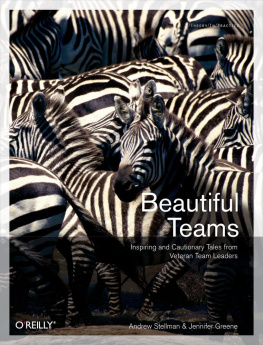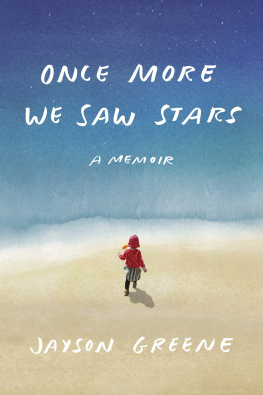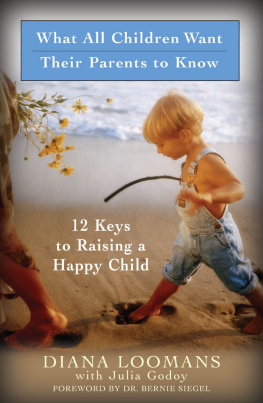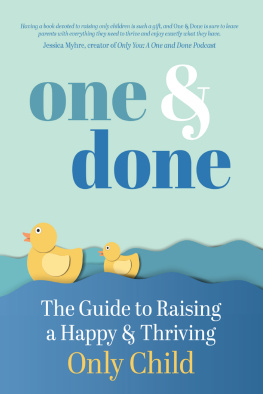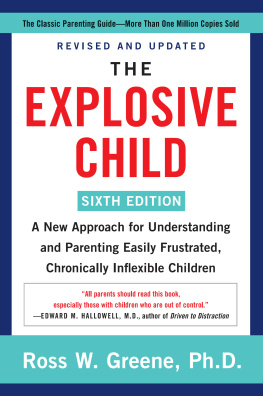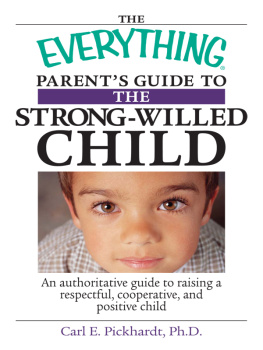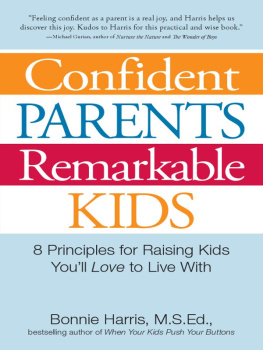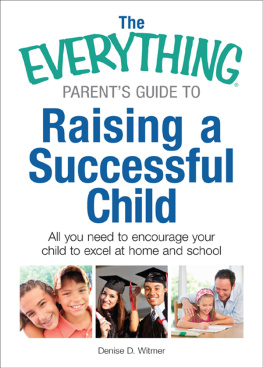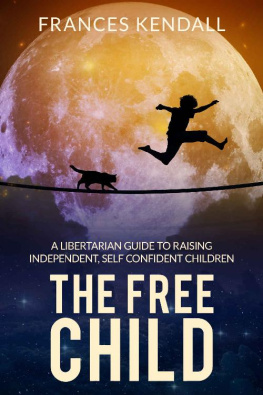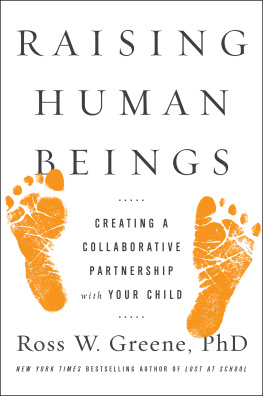Also by Ross W. Greene, PhD
The Explosive Child: A New Approach for Understanding and Parenting Easily Frustrated, Chronically Inflexible Children
Lost at School: Why Our Kids with Behavioral Challenges Are Falling Through the Cracks and How We Can Help Them
Lost and Found: Helping Behaviorally Challenging Students (and While Youre At It, All the Others)

Scribner
An Imprint of Simon & Schuster, Inc.
1230 Avenue of the Americas
New York, NY 10020
www.SimonandSchuster.com
This publication contains the opinions and ideas of its author. It is intended to provide helpful and informative material on the subjects addressed in the publication. It is sold with the understanding that the author and publisher are not engaged in rendering medical, health, or any other kind of personal professional services in the book. The reader should consult his or her medical, health, or other competent professional before adopting any of the suggestions in this book or drawing inferences from it.
The author and publisher specifically disclaim all responsibility for any liability, loss or risk, personal or otherwise, which is incurred as a consequence, directly or indirectly, of the use and application of any of the contents of this book.
Copyright 2016 by Ross W. Greene
All rights reserved, including the right to reproduce this book or portions thereof in any form whatsoever. For information, address Scribner Subsidiary Rights Department, 1230 Avenue of the Americas, New York, NY 10020.
First Scribner hardcover edition August 2016
SCRIBNER and design are registered trademarks of The Gale Group, Inc., used under license by Simon & Schuster, Inc., the publisher of this work.
For information about special discounts for bulk purchases, please contact Simon & Schuster Special Sales at 1-866-506-1949 or .
The Simon & Schuster Speakers Bureau can bring authors to your live event. For more information or to book an event, contact the Simon & Schuster Speakers Bureau at 1-866-248-3049 or visit our website at www.simonspeakers.com.
Interior design by Jill Putorti
Jacket design by Pete Garceau
Jacket Art Ryasick/E+/Getty Images
Library of Congress Cataloging-in-Publication Data has been applied for.
ISBN 978-1-4767-2374-7
ISBN 978-1-4767-2377-8 (ebook)
For Talia and Jacob... the future is yours.
Want to help someone? Shut up and listen!
ERNESTO SIROLLI
You never really understand a person until you consider things from his point of view... until you climb inside his skin and walk around in it.
HARPER LEE , To Kill a Mockingbird
Grown men can learn from very little children, for the hearts of little children are pure. Therefore, the Great Spirit may show children many things that older people miss.
BLACK ELK
Tell me and I forget. Teach me and I remember. Involve me and I learn.
BENJAMIN FRANKLIN
CONTENTS
INTRODUCTION
Where Were Heading
W elcome to Raising Human Beings . Im very glad youre reading this book. The mere fact that youre doing so suggests that you take parenting seriously and want to do it well. Thats good; your kid needs you to think about what youre trying to achieve as a parent and to have the tools to accomplish the mission. If youve been feeling a little muddled about those things, thats understandable. These days, the guidance on how to raise kids is so ubiquitous and so incongruous that its hard to know whats right and wrong, whats important and whats not, what to prioritize and what to let slide, and how best to respond when your kid isnt meeting expectations.
Lets begin by thinking about the most crucial task of your childs development: he needs to figure out who he ishis skills, preferences, beliefs, values, personality traits, goals, and directionget comfortable with it, and then pursue and live a life that is congruent with it. As a parent, you have a similar task: you, too, need to figure out who your child is, get comfortable with it, and then help him live a life that is congruent with it. Of course, you also want to have influence. You want your kid to benefit from your experience, wisdom, and values and effectively handle the academic, social, and behavioral expectations of The Real World.
That balancebetween having influence and helping your child live a life that is congruent with who he isis hard to achieve. Most conflict between parents and kids occurs when that balance is out of whack. The collaborative, nonpunitive, nonadversarial approach to parenting described in this book will help you maintain the balance and keep the lines of communication open.
But, as suggested by the title, this book has a dual agenda. Yes, you definitely want things to go well in your relationship with your child, and you want your child to be able to handle the demands and expectations of The Real World. But you also want to parent in ways that foster qualities on the more positive side of human nature. We humans are capable of both altruistic and ignoble actions. Our instincts can lead us to acts of remarkable compassion and cooperation but also to lamentable insensitivity, conflict, and destruction. We have the capacity for characteristics such as empathy, honesty, collaboration, cooperation, appreciating how ones actions are affecting others, perspective taking, and resolving disagreements in ways that do not cause conflict. Those are characteristics that The Real World is going to demand. But they need to be cultivated and encouraged. The approach to parenting described in this book will help you accomplish that mission as well.
Like many parents, you may find it hard to maintain perspective on the kind of parent you want to be when youre caught up in the minutiae of everyday living. Its easy to lose sight of the big picture when every day youre consumed with your childs hygiene, homework, chores, sports, activities, appointments, friends, car pools, SATs, and college applications. But maintaining your perspective is worth the effort, not only for your relationship with him but because the challenges that face our species and our world are going to demand his and your best instincts and actions. We need to raise our game, starting with how we raise our kids.
Now, a brief word about me. Im the father of two kids, both now in their teens, so I have some firsthand experience with the peaks and valleys of parenting. Its been the most fun and humbling experience of my life. Ive also been a clinical psychologist for over twenty-five years, specializing in kids with social, emotional, and behavioral challenges. Ive worked with thousands of kids in many different contexts: families, schools, inpatient psychiatry units, residential facilities, and prisons. Did my psychology training and experiences work to my advantage in parenting my own two kids? I suppose so. But just like everyone else, I had to get to know my children, figure out who they are, and take it from there. And I had to adjust at various points along the way, because those kids of mine kept growing and changing on me.
In my first book, The Explosive Child , I articulated an approach to parenting behaviorally challenging kidsthe approach is now called Collaborative & Proactive Solutions (CPS)that helps caregivers focus less on modifying kids behavior and more on partnering with kids to solve the problems that are causing those behaviors. Youll be reading a lot about that approach in this book, because its just as applicable to kids whose problems and behaviors are more typical. See, theres really not a whole lot of difference between typical kids and those who might be characterized as more challenging. Yes, some are more violent and volatile than others. Some are big talkers; others are quiet or completely nonverbal. Some come from fortunate circumstances; others have come down a much tougher path. Some live with their biological parents, others with one parent, or stepparents, or adoptive parents, or foster parents, or grandparents. Some have academic struggles; others have difficulty making friends; and still others struggle with overuse of substances or video games or social media. Some have lofty aspirations; others arent thinking much at all about what the future holds.
Next page

